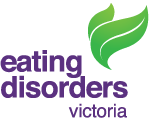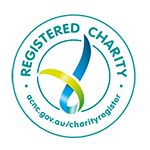Our stories
- Mark Discussion as New
- Mark Discussion as Read
- Float this Discussion for Current User
- Favourite
- Subscribe
- Printer Friendly Page
- Mark as New
- Favourite
- Subscribe
- Get link
- Flag for Moderator
27-05-2024 05:49 PM
27-05-2024 05:49 PM
Support
My adult child has had depression since about 8. It has always been an anxious time supporting him. As an adult not knowing when to travel to them or to get a welfare check when they are depressed. This has led to lots of anxiety on my part. Psychological help comes in fits and starts for him. He has been diagnosed with BPD. I am at wits end at times trying to help but not knowing how although being supportive for many years. I can take the tack which I try to that they are adult and I have done my best. My husband died recently reducing the support we gave together. The other tack is falling in to the worry mode which frankly doesn’t do him or me great benefits.
- Mark as New
- Favourite
- Subscribe
- Get link
- Flag for Moderator
27-05-2024 07:32 PM
27-05-2024 07:32 PM
Re: Support
Oh wow @Patticake so much on your plate!
I'm sorry to hear things are so tough with your son, and having lost your husband would make it so much harder. I don't have much in the way of advice, but I will tag @BPDSurvivor who could maybe chat to you about ways to support a loved one who has BPD.
Sending some hugs your way 🫂
- Mark as New
- Favourite
- Subscribe
- Get link
- Flag for Moderator
27-05-2024 07:58 PM
27-05-2024 07:58 PM
Re: Support
You.
- Mark as New
- Favourite
- Subscribe
- Get link
- Flag for Moderator
28-05-2024 07:22 PM
28-05-2024 07:22 PM
Re: Support
I am not sure if I am posting correctly. This should be a follow up from my first post.I have a real problem discussing things with my family member in case he becomes annoyed or more depressed but there are things I need to say to him about his life. How do I approach that? He is in his 40s.
- Mark as New
- Favourite
- Subscribe
- Get link
- Flag for Moderator
28-05-2024 08:15 PM
28-05-2024 08:15 PM
Re: Support
Hey @Patticake you got it right! It's appeared at the bottom of your original post 😉
Hmm it's really hard to approach big conversations like that isn't it? I totally feel you - in fact I am currently procrastinating a big conversation in my own life... It really wracks the nerves!
I find it super helpful to write things down first. I will often do two drafts - one where I simply pour all of my emotions out, completely rough, and not even trying to think about how the other person might react. This helps me to reflect a little on how I feel and gives me a chance to think more deeply about what I actually want to get out of the conversation. The second draft is where I try to narrow things down, and put it into bullet points which I usually end up referring back to during the conversation.
I dunno if it would be helpful or not but this article about conflict resolution could be a good resource to take a peek at too.
- Mark as New
- Favourite
- Subscribe
- Get link
- Flag for Moderator
31-05-2024 02:02 AM
31-05-2024 02:02 AM
















